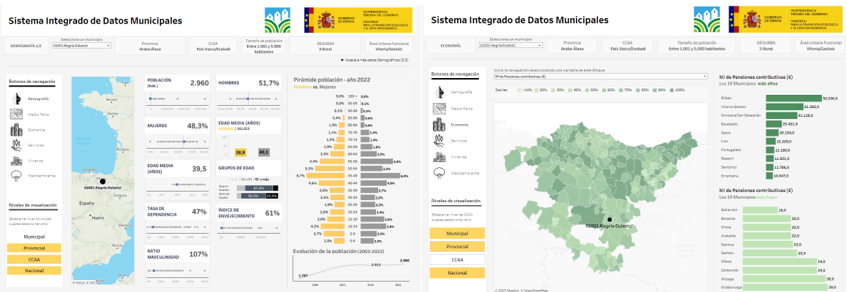
Challenges in Municipal Digital Transformation
The objective of the sampling is to know the level of Municipal Digital Transformation. This was carried out through telephone interviews in which 222 municipalities participated, which represents 30.6% of the municipalities within the established population range. Regarding the profile of those interviewed, 85% held positions such as IT Managers, CIO's or Directors of Digital Transformation and Innovation, while the remaining 15% held roles such as Controller, Secretary or Head of the Municipal Treasury. Regarding gender distribution, 23% were women and 77% were men.
The study showed that 87.1% of the municipalities surveyed had their own IT department, which underlines the importance of the Municipal Digital Transformation in all spheres of Public Administrations.
However, the Barometer of ICT investment by Public Administrations in Spain, recently published by Adjudicaciones y Licitaciones TIC, revealed a decrease from 20% in total investment in information technologies by Public Administrations during 2020, mainly due to the health and economic crisis caused by the Covid-19 pandemic.
Despite this decrease, investments in management software experienced growth of 16.5% in 2020, exceeding €98 million. Solutions such as ERP, Document Management tools and Business Intelligence Applications stood out.
The low adoption of analytical tools draws powerful attention when, according to the III Study on the state of Digitalization of Spanish Companies and Public Administrations, carried out by the Vodafone Observatory, the greatest concern of city councils and all public administrations It is digitalization and the use of new technologies. And, furthermore, one in four public administrations recognize the importance of big data in the Municipal Digital Transformation.

Opportunities for Improvement with Analytical Solutions
To improve the situation described, it is crucial to implement strategies that promote Municipal Digital Transformation. Some measures that could help are:
- Education and training: Provide training and education programs for municipal staff in the use of analytical tools and data interpretation.
- Investment in technology: Allocate resources to acquire and implement platforms and analytical software appropriate to the needs of each municipality.
- Public-private collaboration: Establish alliances with technology companies to access innovative solutions adapted to municipal specificities.
- Promotion of good practices: Share successful experiences between city councils and encourage the adoption of good practices in the use of analytical tools.
- Awareness and leadership: Raise awareness about the importance of data analysis in municipal decision-making and promote leadership committed to digital transformation.
- Development of specific solutions: Encourage the development of analytical solutions designed specifically for the needs and characteristics of municipalities, such as Udal Data Analytics mentioned in the text.
By implementing these measures, city councils could improve their ability to efficiently manage resources, make more informed decisions and offer higher quality services to citizens.
Fountain: BigData Magazine
If you want to know more about our Data Analysis service, click here
Learn more about our service today. Please fill out the form below and one of our representatives will contact you as soon as possible to provide you with all the information you need.